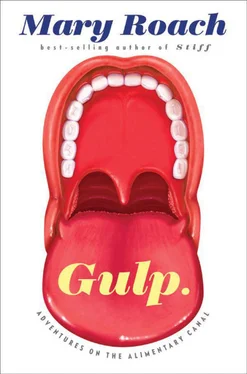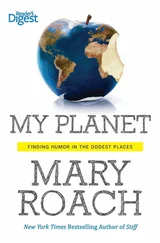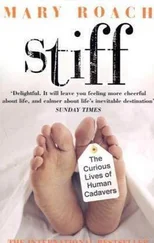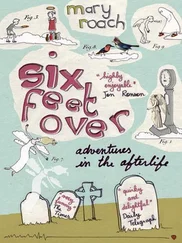Fletcher in the flesh did not, by most accounts, appear to be the crackpot that that sentence suggests. He is described as cheerful and charming, a bon vivant who liked to dress in cream-colored suits that set off his tan and matched his snowy hair. He believed in physical fitness, clean living, good manners, fine food.
Fletcher’s well-lubed charm and connections served him well. Generals and presidents took up “Fletcherizing,” as did Henry James, Franz Kafka, the inevitable Sir Arthur Conan Doyle. In 1912, around the fad’s peak, Oklahoma Senator Robert L. Owen penned a proclamation—a draft of which resides among the Fletcher papers—urging the formation of a National Department of Health based on the principles of the Fletcher system. Senator Owen declared excessive chewing a “national asset” worthy of compulsory teaching in schools. Not long after, Fletcher snagged a post on Herbert Hoover’s World War I Commission for Relief in Belgium.
It was not mere charisma that landed him there. Fletcherism held a good deal of intuitive appeal. Fletcher believed—decided, really—that by chewing each mouthful of food until it liquefies, the eater could absorb more or less double the amount of vitamins and other nutrients. “Half the food commonly consumed is sufficient for man,” he stated in a letter in 1901. Not only was this economical—Fletcher estimated that the United States could save half a million dollars a day by Fletcherizing—it was healthier, or so he maintained. By delivering heaps of poorly chewed food to the intestine, Fletcher wrote, we overtax the gut and pollute the cells with the by-products of “putrid bacterial decomposition.” While other feces-fearers of the day advocated enemas to speed food through the putrefaction zone (and more on this in chapter 14), Fletcher advised delivering less material.
Practitioners of Fletcher’s hyperefficient chewing regimen, he wrote, should produce one-tenth the bodily waste considered normal in the health and hygiene texts of his day. And of a superior quality—as demonstrated by an unnamed “literary test subject” who, in July 1903, while living in a hotel in Washington, D.C., subsisted on a glass of milk and four Fletcherized corn muffins a day. It was a maximally efficient scenario. At the end of eight days, he had produced sixty-four thousand words, and just one BM.
“Squatting upon the floor of the room, without any perceptible effort he passed into the hollow of his hand the contents of the rectum…,” wrote the anonymous writer’s physician in a letter printed in one of Fletcher’s books. “The excreta were in the form of nearly round balls,” and left no stain on the hand. “There was no more odour to it than there is to a hot biscuit.” So impressive, so clean, was the man’s residue that his physician was inspired to set it aside as a model to aspire to. Fletcher adds in a footnote that “similar [dried] specimens have been kept for five years without change,” hopefully at a safe distance from the biscuits.
At one chew per second, the Fletcherizing of a single bite of shallot would take more than ten minutes. Supper conversation presented a challenge. “Horace Fletcher came for a quiet dinner, sufficiently chewed,” wrote the financier William Forbes in his journal from 1906. Woe befall the non-Fletcherizer forced to endure what historian Margaret Barnett called “the tense and awful silence which… accompanies their excruciating tortures of mastication.” Nutrition faddist John Harvey Kellogg, whose sanatorium briefly embraced Fletcherism, [27] The two parted ways over feces. Kellogg’s healthful ideal was four loose logs a day; Fletcher’s was a few dry balls once a week. It got personal. “His tongue was heavily coated and his breath was highly malodorous,” sniped Kellogg.
tried to reenliven mealtimes by hiring a quartette to sing “The Chewing Song,” [28] I managed to track down only one stanza. It was enough. “I choose to chew / because I wish to do / the sort of thing that Nature had in view / Before bad cooks invented sav’ry stew / When the only way to eat was to chew, chew, chew.”
an original Kellogg composition, while diners grimly toiled. I searched in vain for film footage, but Barnett was probably correct in assuming that “Fletcherites at table were not an attractive sight.” Franz Kafka’s father, she reports, “hid behind a newspaper at dinnertime to avoid watching the writer Fletcherize.”
How did this unsightly and extreme practice come to be taken seriously? Fletcher, an assiduous networker and general gadabout, began by getting the scientists on his side. Though he had no background in medicine or physiology, he collected friends who did. While living in a hotel in Venice in 1900, Fletcher befriended the hotel doctor, Ernest van Someren. Originally more interested in Fletcher’s stepdaughter than in his theories, van Someren was eventually won over (or worn down—Fletcher’s letters, though gaily phrased, [29] “Vesuvius is puking lava at an alarming rate.”
amount to lengthy harangues). Van Someren gussied up Fletcher’s theories with invented medical jargon like the “secondary reflex of deglutition.”
As only a hotel doctor has time for, van Someren set to work gathering the data both men knew Fletcher would need to gain approval in scientific circles. Fletcher had experimented on himself, but these efforts were unlikely to convince the research community. He had simply weighed and recorded each day’s bodily input and output for both himself and “my man Carl,” over the course of a bicycle trip through France. As Fletcher described the scenario, in a letter to one of his benefactors in 1900, Carl was “a young Tyrolean… in national costume” hired to carry the scale and “wheel my bicycle up the grades and be generally useful.”
Van Someren presented a paper at a meeting of the British Medical Association in 1901, and again at the International Congress of Physiology. Skeptical but intrigued, well-placed scientists at London’s Royal Society and at Cambridge University, and Yale’s Russell Chittenden [30] A summary of Chittenden’s project appears in the June 1903 issue of Popular Science Monthly , on the same page as an account of the Havre Two-Legged Horse, a foal born without forelegs, resembling a kangaroo “but with less to console it, since the latter has legs in front, which, while small and short are better than none at all.” On a more upbeat note, the foal was “very healthy and obtains its food from a goat.”
undertook follow-up studies, with mixed conclusions. In 1904, thirteen lads of the Hospital Corps Detachment of the U.S. Army were taken away from their nursing duties for six months to serve as guinea pigs in a test of Fletcher and Chittenden’s low-calorie, low-protein, super-mastication regimen. Here there was no strapping lad in knickers and feathered felt hat to do the weighing and tidying up. The men’s work began at 6:45 A.M. with an hour and a half of “duties about the quarters, such as… assisting in measurement of urine and faeces and transportation of the same to the laboratory; cleansing of faeces cans and urine bottles, etc.”
Chittenden claimed to have evidence that the Fletcher system enabled a man to get by on two-thirds the calories and half the protein recommended by the current nutrition guidelines. Though the claims were roughly critiqued and largely dismissed by other scientists, they struck a chord with victualers: military officers and others whose jobs entailed feeding hungry hordes on limited budgets. In the United States and Europe, administrators at workhouses, prisons, and schools flirted with Fletcherism. The U.S. Army Medical Department issued formal instructions for a “Method of Attaining Economic Assimilation of Nutriment”—aka the Fletcher system. (“Masticate all solid food until it is completely liquefied,” begins the familiar refrain.) In 1917, Chittenden became a scientific advisor to Herbert Hoover, then the head of the U.S. Food Administration. Fletcher, living in Belgium during World War I and already chummy with the U.S. ambassador there, parlayed these two connections into his gig as an “honorary alimentary expert” for Hoover’s relief commission. Together, he and Chittenden did their best to convince Hoover to make Fletcherism part of U.S. economic policy, thereby justifying a two-thirds reduction in the amount of civilian rations shipped overseas. Hoover sagely resisted.
Читать дальше












